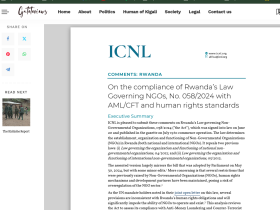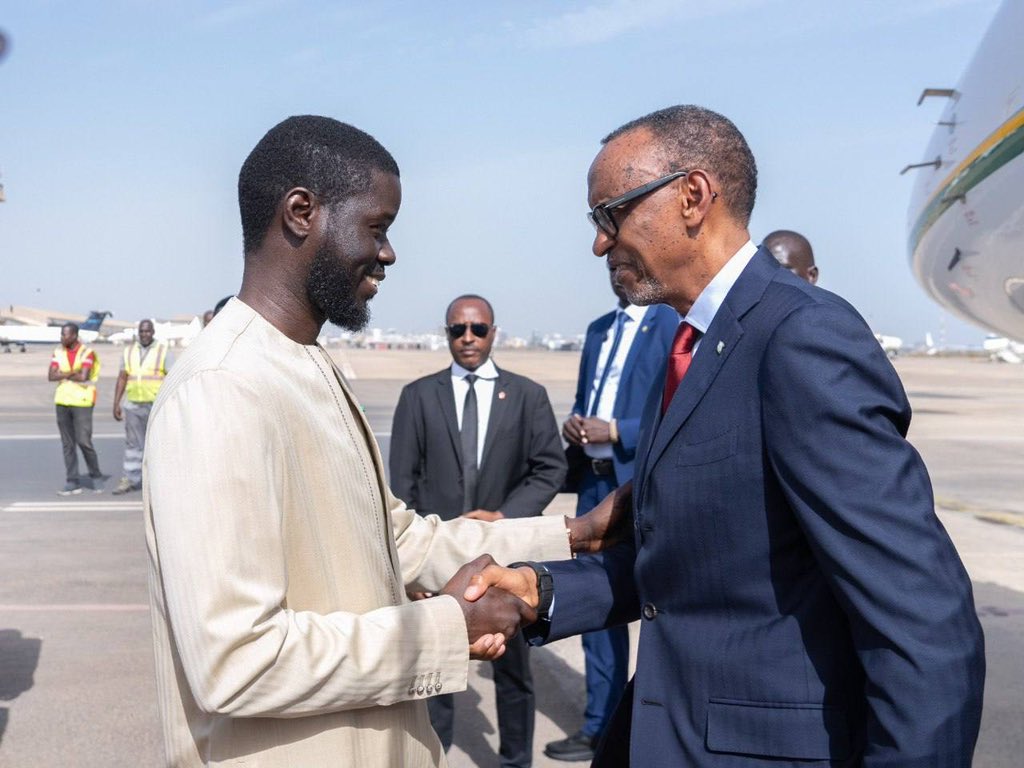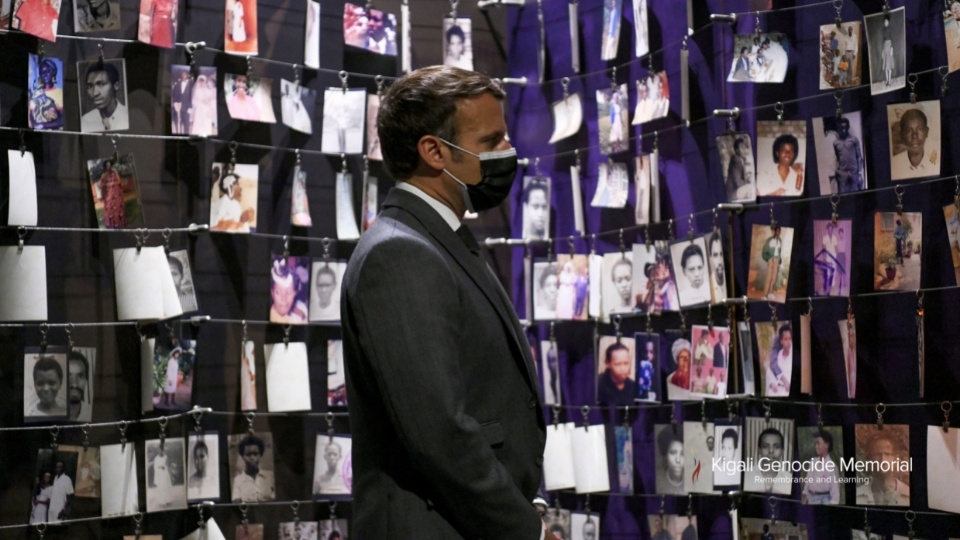How can we make RPF-Inkotanyi and Rwanda Rich?
‘Why is RDF the best performing institution of government? Because when they don’t perform, they die. And thanks God for Rwandan enemies, for they keep RDF on the cutting edge!’
During the last three days of National Dialogue and RPF congress, President Kagame kept asking one question: ‘Now that we have consolidated, why can’t we scale?’ Highlighting levels of stagnating, at times inane management that have characterized RPF CEOs and government leaders.
The usual apologies and explanations left the president expectedly unsatisfied: ‘The explanations you are giving me are mere symptoms, what is the root cause? Why is this practice recurrent?’ He asked, repeatedly. All RPF companies, it seems, have become rent-seekers, comfortably waiting for the president to ‘disrupt’ them into action.
The answer to all these questions is known. But it is radical and potentially unpopular.
The strength of the Rwandan Patriotic Front (RPF) may also be its weakness.
‘res comuni, res nullius’: That which belongs to all, ultimately belongs to no one, an adage goes. Beyond politics, capitalists’ main criticism of communism – or even socialism, is absence of personal ambition! Capitalists argue that in the long run, the communist agency suffers from lack of innovation because no one goes the extra mile to work 80 hours a week, spend sleepless nights, mortgage their house and risk it all in order to make that breakthrough needed to leap country and society forward. Capitalists have a point, this time!
‘It seems they are waiting for me again to go and push them to do what they are supposed to do’ – the Chairman complained. Listening to him, one would have mistaken him for the real Chief Executive Officer of those RPF companies; well guess what? HE is.
Paul Romer, a professor at New York University’s Stern School of Business, who resigned as chief economist at the World Bank was awarded a Nobel Prize in Economics last year, in recognition of the groundwork he laid for what is known as the ‘endogenous growth theory’.
The theory assesses how market imperfections impending growth can be addressed by technological advances, new research, policy interventions and other innovative ways of thinking outside of the economic sphere. In a nutshell, Mr. Romer believes that ‘ideas’ are the most important asset of economic growth, contributing as much as the traditional inputs such as labor, skills and physical capital.
Alas! This isn’t an essay on Romer’s theories nor the typically impassioned debate on Capitalism v. Communism, to quote Deng Xiaoping: ‘I don’t care if the cat is black or white so long as it catches mice’. This is a theory on scaling our party and country and an argument that we have reached that point where we are strong enough to incentivize personal ambition.
There are three stages in a business:
1. Initiation
2. Consolidation
3. Scale.
A business may not scale without personal ambition.
In his presentation of the annual report to members, the Secretary General of the RPF explained that the party has met its annual targets and a, few misconducts notwithstanding, the party stands strong and healthy financially. He also remarked that in this exercise it has been able to meet its financial budget, that the audit report is compliant and that the party, after all investments, has saved up three million Rwandan Francs. That is consolidation.
What Rwanda is doing has not been done in Africa before; namely using the ruling party and its members as the engines of economic growth. Generally, African countries live off rents, drawing their financing from abundant natural resources, expansive markets and foreign aid. Middle income African economies have large private sectors.
Rwanda’s economy is designed as a market of services, export of agriculture products, limited industry and technology. In such an economy, innovation and excellence are the main ingredients. The question then arises: how can Rwandans surpass themselves in terms of innovation and best performance? in other words: how can Rwanda be a true business?
CEOs of the 21st Century: Speaking to CEOs of RPF as well as state-owned companies, all confirmed to me that they are monthly salaried, with advantages such as a car and a house loan for some, gym membership, access to airport lounges, and exceptionally, school fees for children, etc. This is not the treatment of top CEOs of the 21st Century.
For the RPF and the country to scale, we might need to disrupt the business model all together!
An article in ‘Dollar and Sense’ describes Chief Executive Officers (CEOs) as: ‘people who work under immense pressure to perform, and work long-hours to get the work done. CEOs make critical operational decisions that impact everything from employee morale to balance sheet health to future business direction.’ It argues that this job is not for the faint-hearted and that they should be paid ‘most handsomely.’
Has this been done by a ruling party elsewhere? Yes. In Singapore. Late Lee Kwan Yew used to headhunt CEOs from top performing companies in the West, appoint them as ministers and CEOs then wait for the magic to happen… Nothing! He was consistently disappointed, until he introduced the system of bonuses and shares.
Today, Ministers in Singapore and CEOs of ‘People Action Party’ (PAP) companies,’ take-home packages ranging between USD 1.000.000 and USD 4.500.000, annually.
Where will the money come from, and wouldn’t this be unfair? I hear many wondering…
Well RPF CEOs shouldn’t be paid monthly salaries, instead, they should be given shares into the companies that they run. While a stipend is placed at their disposal for upkeep, their remuneration package and bonuses should be calculated ‘au pro rata’ of their annual performances. Equally, like managers of European football clubs, they should resign whenever their performance has not satisfied the shareholders (RPF members), as reported by the Board of Directors, equally well remunerated – au pro-rata. And this, regardless of their loyalty to the party and their manifest love for the country.
In other words let’s get RPF CEOs to have some ‘skin in the game’. That will instill in Rwandan leaders a sense of personal ambition.
As regards fairness, well, business is business! And existing control mechanisms of the RPF and the country shall continue to ensure due appointment process.
The RPF’s mandate isn’t only monetary: This is correct. As explained by Dr. Diane Karusisi, CEO of Bank of Kigali, one of the hindrances to RPF’s scale is its intent to assist government by investing in strategic sectors of the Rwandan economy, as advised by party and country leaders.
To answer this question, I will theme it up with the source of RPF funds.
RPF members’ contributions. This is another RPF’s weakness and a source of lack of discomfort – crucial for an innovator: No business works like this. All businesses have a defined, finite equity which they invest with a risk of bankruptcy. Others take loans and service them frequently. No business benefits from an endless cashflow stream.
Possible answer: The RPF Foundation. Let me illustrate: What all philanthropists have in common is that they become billionaires first, then philanthropists second. At times they become philanthropists to evade taxes. It is their philanthropy that help their businesses and not the other way round.
RPF Membership contributions have an important value. As the saying goes, ‘People tend to put their money where their mouths are.’ Some RPF members canvass for party leadership positions, lobby and mobilize to keep the party in power, because they have a vested interest in it.
However, the RPF shouldn’t treat membership contribution as foreign aid or natural resources. Nor should the country treat people’s taxes are rents.
The RPF should create a Fund, where contributions of members should be managed to serve its social pillars while and entirely (or as much as possible) divorce its businesses from politics.
How to run the Rwandan government as a business? By creating a system of financial reward. Let me illustrate with two examples:
Best performing Mayor: Once their district performs as the best in the country, they are given a shiny golden trophy, a certificate, a handshake with the president and a photo opportunity, which they would then visibly display on their office desk for visitors to see. Then they would continue to earn the same salary as the mayor who’s district performed last in the same year.
If their district performs best for a second year, they would get a shiny golden cup, a handshake with the president and a photo opportunity. Now there is only so much space on a mayor’s wooden desk and after the third year of high performance, it starts to get crowded up there. So the older cup, certificate and photo are removed, stored in a desk and replaced with new ones. The salary however, will have not budged. Now everyone wonders: Why haven’t they surpassed themselves? Because they have no incentive to do so: They have no ‘skin in the game’.
That’s how you find in Rwanda whenever an official holiday falls on a weekend, it has become common practice to carry it over to Monday. To private Sector people this is madness!
Rwandan ambassadors. Let me illustrate this too with a story: Historically, King Kigelis’ mission were to expand the size of Rwanda (kwagura uRwanda). They conquered massive territories of land, people and wealth. But upon independence we winded up with a tiny territory; all conquest for which Rwandan fighters had sacrificed their lives had been lost. Why? Because like Chinese, all Rwandan administrators preferred to be in Rwanda, next to the king: ‘Ibwami’ – gukeza’ instead of conquering the expanded Rwandan territories. To this day, all Ambassadors’ basic salary is uniform, regardless of who brings more investors to Rwanda than the other, to the point that some of them started cutting deals with the said investors, before or without bringing them to Rwanda.
But those ambassadors needed not cheat, had they been promised a percentage on every investment they bring to motherland. All factors remaining equal, a rewarding system of governance therefore is an answer to corruption, and uniform salary scales make no sense in a developmental state.
Ideology v. reward: Ideology has it’s limits. The most ideologized countries are also the most corrupt and ineffective in the world. This is the reason Lionel Messi scores more goals for Barcelona than for Argentina, and despite having some of the best players in the world, Africa doesn’t win the world cup. These players do not hate their respective countries, they just do not see what’s in it for them.
Competition brings innovation: Speaking on the panel, a young RPF leader explained: ‘we’, meaning Rwanda, are competing with some other countries. In business however, a country of eleven million doesn’t compete together. Those like me who have owned an old car know that when it can’t start, there are people who push and people who make noise about pushing. Whenever all are rewarded the same, those who really pushed always complain.
‘Zero Fleet Policy’: Rwanda tried personal reward with the ‘Zero Fleet’ government policy. Civil servants were facilitated to buy motor vehicles and fully own them overtime. By the time the ownership was transferred to the owners, the vehicles were surprisingly in much better conditions than a vehicles owned by government during the same period.
Rwanda: The Age of Scale
To conclude, government’s white elephants typically start making profit the moment they are bought or run by private sector, because if the Rwandan Government ensures that rules of the game are respected, provide the appropriate support where it is needed; if Rwandans competed fairly with one another, the world would take care of itself.



















Leave a Reply